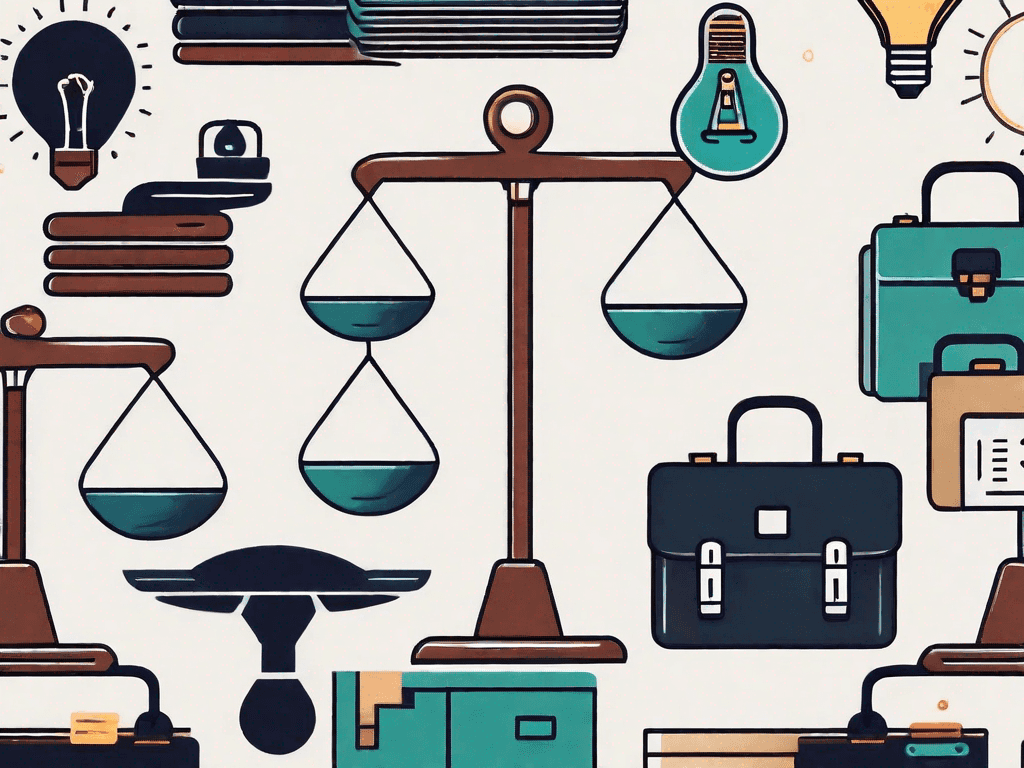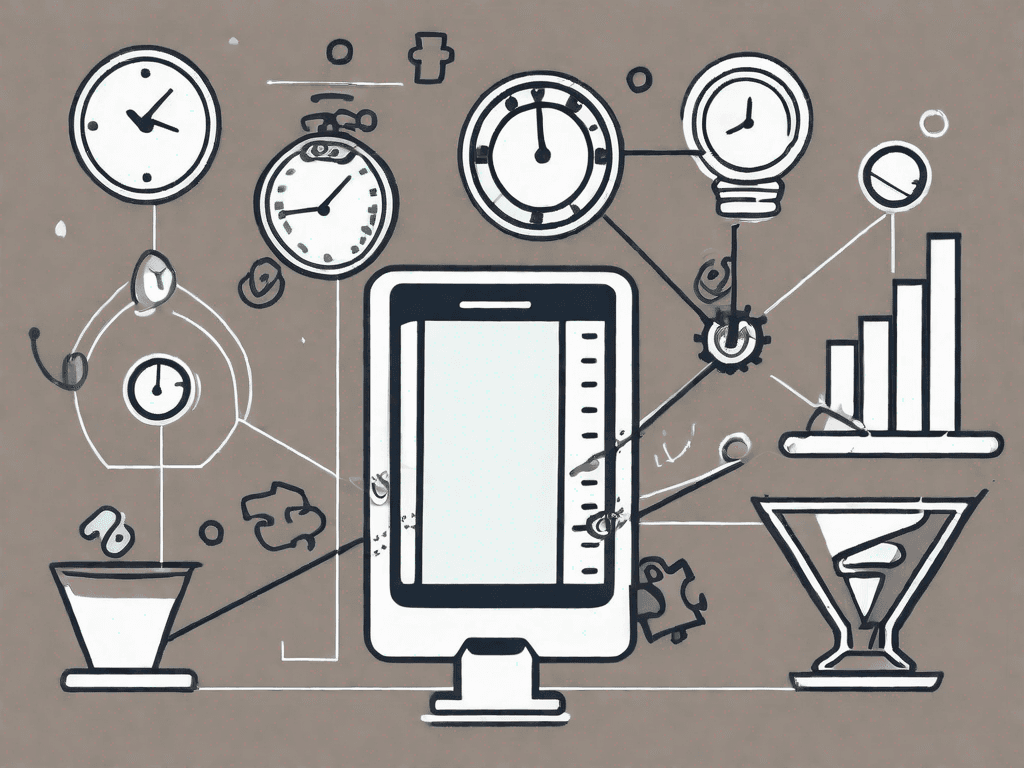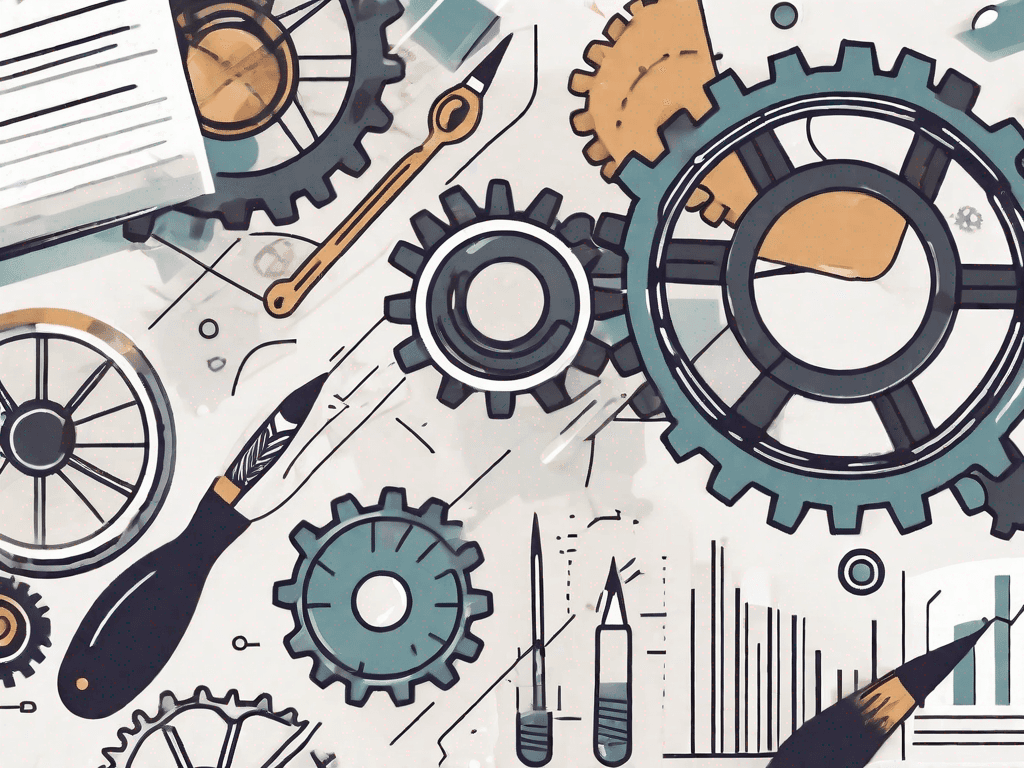
What is a Funnel? (Explained With Examples)
A funnel is a term commonly used in various industries to describe a marketing or sales process. It represents the journey that a potential customer goes through, from the initial stage of awareness to the final stage of making a purchase decision. In this article, we will explore the concept of a funnel, its definition, advantages, and disadvantages, as well as provide real-life examples to help illustrate its application in different contexts
1°) What is a Funnel?
A funnel, in the context of marketing and sales, refers to a systematic approach that guides potential customers through a series of stages, with the ultimate goal of converting them into paying customers. It is visualized as a funnel-shaped diagram, representing the gradual narrowing down of prospects as they progress through the different stages of the funnel.
Imagine a funnel as a pathway that leads potential customers from the initial stage of awareness all the way to the final stage of making a purchase. This strategic framework helps businesses streamline their marketing and sales efforts, ensuring that every interaction with a prospect is purposeful and aimed at moving them closer to becoming a customer.
1.1 - Definition of a Funnel
At its core, a funnel is a strategic framework that enables businesses to efficiently capture, nurture, and convert leads into customers. It helps visualize the customer journey and allows marketers and sales professionals to identify potential bottlenecks or areas for improvement in the process.
When a prospect enters the funnel, they are in the awareness stage. This is where they become aware of a business or its products/services. As they progress through the funnel, they move into the interest stage, where they show genuine interest in what the business has to offer. From there, they enter the consideration stage, where they evaluate different options and weigh the pros and cons. Finally, they reach the decision stage, where they make a purchase decision.
Each stage of the funnel requires different strategies and tactics to effectively engage and convert prospects. By understanding the customer journey and the specific needs and motivations at each stage, businesses can tailor their marketing and sales efforts to maximize conversion rates.
1.2 - Advantages of a Funnel
One of the key advantages of using a funnel is that it provides a structured approach to marketing and sales. By clearly defining each stage of the customer journey, businesses can tailor their messaging and strategies to effectively address the needs and concerns of their target audience at each stage.
Furthermore, a funnel allows businesses to track and measure their marketing and sales efforts more accurately. By assigning specific goals and metrics to each stage, businesses can identify areas of improvement and optimize their campaigns for better conversion rates. This data-driven approach helps businesses make informed decisions and allocate resources effectively.
Moreover, a funnel enables businesses to nurture leads and build relationships with potential customers over time. By providing valuable content and personalized experiences at each stage, businesses can establish trust and credibility, increasing the likelihood of conversion.
1.3 - Disadvantages of a Funnel
While funnels are widely used and effective in many scenarios, they are not without their limitations. One of the main disadvantages is the potential for oversimplification. Funnels provide a linear representation of the customer journey, but in reality, the process can be much more complex and non-linear.
Customers may not always follow a linear path through the funnel. They might jump between stages, revisit previous stages, or even enter the funnel at a later stage. This complexity requires businesses to be flexible and adaptable in their approach, ensuring that they can cater to the unique needs and behaviors of individual customers.
Furthermore, funnels may not cater to the diverse needs and preferences of individual customers. By categorizing prospects into predefined stages, businesses may overlook the uniqueness of each customer and miss opportunities for personalized interactions. It is important for businesses to strike a balance between the efficiency of a funnel and the need for personalized experiences.
In conclusion, funnels are a valuable tool for businesses to guide potential customers through the journey from awareness to purchase. They provide a structured framework that helps businesses optimize their marketing and sales efforts, but it is crucial to recognize the limitations and adapt the funnel approach to the specific needs and behaviors of the target audience.
2°) Examples of a Funnel
Now that we have explored the concept of a funnel, let's take a look at some real-life examples to illustrate its application in different contexts.
2.1 - Example in a Startup Context
Imagine a startup that has just launched a new mobile app. The funnel for this startup may begin with generating awareness through social media marketing and advertising. As potential users become aware of the app, the funnel progresses to the interest stage, where they download the app and explore its features. Through targeted emails and notifications, the startup guides users through the consideration stage, encouraging them to become active users and providing support and incentives. Finally, the funnel aims to convert these active users into paying customers through premium features or subscription plans.
2.2 - Example in a Consulting Context
In the consulting industry, a funnel can be used to attract and convert potential clients. The funnel starts with raising awareness through thought leadership content, such as blog posts and webinars. As prospects engage with the content, they move to the interest stage, where they may sign up for a free consultation or attend a workshop. Through follow-up emails and personalized consultations, the consulting firm guides prospects through the consideration stage, addressing their specific challenges and presenting tailored solutions. The funnel culminates in the decision stage, where prospects become clients and engage in long-term consulting services.
2.3 - Example in a Digital Marketing Agency Context
A digital marketing agency may implement a funnel to attract and convert businesses looking to outsource their marketing efforts. The funnel begins with generating awareness through targeted ads and content marketing. As potential clients show interest by visiting the agency's website or engaging with their content, the funnel progresses to the consideration stage, where they may request a consultation or sign up for a free audit. Through personalized proposals and case studies, the agency guides clients through the decision stage, demonstrating their expertise and presenting a tailored marketing strategy. The funnel aims to convert these prospects into long-term clients, providing ongoing digital marketing services.
2.4 - Example with Analogies
To further illustrate the concept of a funnel, let's consider some analogies. Think of a funnel as a sieve that separates and filters grains of sand. The wide top represents a broad audience, and as the sand goes through the narrower sections, only the finest grains make it to the bottom - representing the final conversion of leads into customers.
Another analogy is to envision a funnel as a journey through different checkpoints at an airport. Passengers start at the check-in counter, where they become aware of their destination and the airline's services. As they progress through security, wait at the gate, and board the plane, they move closer to making the decision to fly with the airline. Finally, they reach their destination, representing the conversion and fulfillment of their travel needs.
In summary, a funnel is a strategic framework that guides potential customers through a series of stages, with the aim of converting them into paying customers. It provides a structured approach to marketing and sales, allowing businesses to effectively address the needs of their target audience at each stage. While funnels have their advantages, they may oversimplify the customer journey and overlook individual preferences. Nevertheless, through real-life examples and analogies, we can understand how funnels can be applied in different contexts to achieve business objectives.











































































































































































































